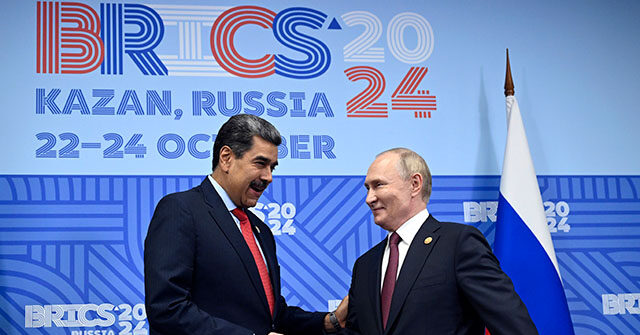The BRICS economic bloc, led by China and heavyweights Brazil, Russia, India, and South Africa, has recently expanded its scope by announcing the addition of 13 new “partner countries,” including Nigeria, Algeria, and Uganda. This expansion was reported by Russia’s Tass news service and corroborated by official statements from the governments of Cuba and Nigeria. Although these partner nations will not enjoy the same level of involvement as full members, their inclusion signifies a growing interest from various nations in aligning with the BRICS framework. The complete list of new partners also comprises Belarus, Bolivia, Cuba, Indonesia, Kazakhstan, Malaysia, Thailand, Turkey, Uzbekistan, and Vietnam, showcasing a diverse geographic representation.
Originally established in 2009 by Brazil, Russia, India, and China, with South Africa joining in 2010, BRICS aims to enhance economic cooperation among its members and create a counterbalance to Western hegemony. In 2023, the bloc invited six new members to join, including Egypt, Iran, Saudi Arabia, the United Arab Emirates, Ethiopia, and Argentina. However, following a political shift, Argentina declined the invitation. The formal integration of the new members is expected to commence in January 2024, while Saudi Arabia’s acceptance remains uncertain. Amidst this evolving landscape, Russian President Vladimir Putin reported that over 30 additional nations have expressed interest in joining BRICS, indicating potential for further expansion.
However, the nature of this newly established “partner” status remains somewhat ambiguous. The partners will not have voting capabilities in BRICS affairs and can only participate selectively in future summits. This arrangement suggests a cautious approach by BRICS leadership, as the bloc continues integrating its recently admitted members. Kremlin aide Yury Ushakov hinted that this partnership might serve as a stepping stone to full membership, although BRICS officials expressed a more tempered view, emphasizing that they may not be ready for substantial expansion at this moment. The need to stabilize and incorporate the existing new members likely prompted the decision to create a category for prospective partners.
The recent BRICS summit in Kazan produced statements affirming the bloc’s commitment to fostering a multipolar world order, which is often interpreted as a vision for diminishing Western influence in global affairs. Turkish President Recep Tayyip Erdogan appeared keenly aware of his status as the only leader from a NATO country present at the summit. His engagement with BRICS reflects a desire to explore alternative alliances amidst ongoing tensions with Western powers, particularly given his frustrations regarding NATO and EU memberships. Erdogan’s presence signaled to both BRICS and NATO that he remains a key figure balancing between these broader geopolitical alignments.
China’s state-run Global Times celebrated the expansion of the BRICS membership, interpreting it as a significant shift away from the post-World War II Western order. Chinese President Xi Jinping called the bloc’s enlargement a “landmark event” that underscores the solidarity among Global South nations, potentially redefining global governance realms. This narrative emphasizes a collective move towards diminishing U.S. and European influence on global policies. However, despite the grand rhetoric surrounding the BRICS vision, critics argue that the bloc has yet to achieve substantial accomplishments that validate its ambitions, raising questions about its capability to impact global governance effectively.
Indeed, both Russia and China’s aspirations for a robust alternative financial system are viewed as central to countering American financial dominion. For nations historically subjected to U.S. sanctions, such as Russia and Iran, joining BRICS becomes vital to circumvent the effects of economic measures that target their sovereignty. This rationale resonates with countries like Uganda, particularly in light of U.S. sanctions perceived as punitive rather than as a genuine attempt to safeguard human rights. The ideological clashes surrounding LGBTQ issues and other social policies have strained relationships between the U.S. and several developing nations, thereby enhancing the appeal of the BRICS alliance as a counter-narrative to Western dominance.

